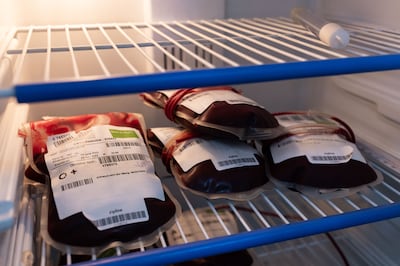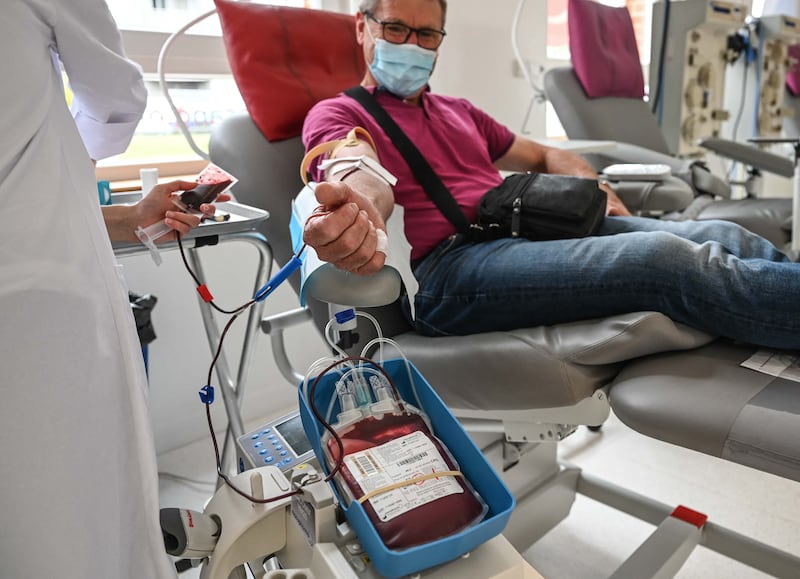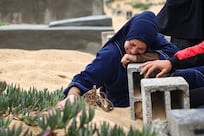Years ago, when working as a journalist in London, I told a colleague in passing that I was a regular blood donor. “Some people will do anything for a free biscuit,” he replied. Fair enough, I thought, I walked into that one.
That said, as I sat later in the West End Donor Centre, experiencing the peculiarly woozy feeling of watching the best part of a pint of blood leave my body, I felt something approaching, if not quite pride exactly, then a kind of virtue in doing something that might conceivably help to save someone’s life.
Donating blood is one of the most altruistic gestures we can make to our fellow human beings. Blood is a resource of critical, life-saving importance that cannot be manufactured and is always in demand. But it cannot be stored for very long and is frequently on the verge of running low. In poorer countries, it is children who need it most; in richer countries, it is older people that mostly receive it. Blood donation, storage and distribution is always a race against the clock, and a plentiful supply can be somewhat taken for granted by those of us blessed with good health. People with rare blood types are particularly vulnerable to shortages.
For the most part, the global supply of blood largely depends upon the goodwill of voluntary donors but when supplies run low it is perilous not only for people caught up in sudden and violent incidents, such as a traffic accident, but also for the millions more who are undergoing transplants, giving birth or suffering from chronic illnesses. People living with certain blood disorders such as beta thalassemia, which is prevalent in parts of the Middle East, often need regular transfusions – a requirement that can last their whole life.

That is why it was heartening to hear last week from Dr May Rouf, president and medical director of the Dubai Blood Donation Centre, who told The National that the number of young people giving blood in the emirate has risen by more than 10 per cent in three years and that people between the ages of 18 and 30 were responsible for nearly a quarter of all donations in 2022.
This bucks a trend identified by the World Health Organisation, which says the age profile of blood donors shows that “proportionally, more young people donate blood in low and middle-income countries than in high-income countries”. It also reveals the robust nature of blood supplies in the Emirates, with Dr Rouf pointing out that “the youth demographic aged between 18 and 30 years is the cornerstone of a sustainable and safe national blood donation programme”.
Although the UAE is fortunate in that it has systems in place to avoid running low on blood supplies – the Dubai centre operates an alert system that notifies staff when reserves of a certain blood type are dwindling – the stark reality is that, across the world, not nearly enough people who are able to donate, do so. This can leave supplies on a knife-edge.
This precarity is highlighted when an acute health emergency arises. The Covid pandemic stretched many countries’ blood supply networks to breaking point – the American Red Cross said it experienced its worst shortage in 10 years and in 2022 recorded a 34 per cent drop in the number of new donors compared to the previous year. In October 2021, the UK’s National Health Service Blood and Transplant authority declared a major incident in which supplies were at risk of dropping below two day’s worth.
But even meeting the daily need for blood can be a challenge. A report earlier this month from Morocco said the country’s National Blood Transfusion and Hematology Centre was forced to launch a nationwide blood donation campaign amid a critical shortage that required more than 1,000 donations a day to meet demand.
The facts around donation paint a complex picture. Research says a willingness to donate blood varies by country and region – for example, a 2018 Ipsos MORI survey of more than 23,000 adults across 28 countries found that just 11 per cent of respondents in Japan said they donated regularly, although 58 per cent in Saudi Arabia said they frequently gave blood. The American Red Cross, which says it provides about 40 per cent of the country’s blood and blood components, says only 3 per cent of eligible Americans donate each year.
Age and sex also seem to play a role. According to an international report from the Association for the Advancement of Blood & Biotherapies, nearly 60 per cent of donations are made by donors over the age of 40. More donations came from donors who were between the ages of 50 and 59 at the time of donation than from any other single age group. The WHO says that while 33 per cent of donations come from women globally, in 15 countries, this figure is less than 10 per cent. A report published in the Saudi Journal of Biological Sciences in December found that of 342,460 donors just 2.51 per cent were female.
Nevertheless, some people are beyond conscientious when it comes to donating – for example, a 34-year-old Dubai resident called Roy Rajan overcame a phobia of needles and blood five years ago to become a regular donor. But there will always be a strong need for new and regular supplies – and this means getting more people to donate.
Making the process easier can help. In some countries, mobile blood banks allow supplies to be collected outside regular donation centres, and setting up an appointment can be as easy as sending a text message. Publicity campaigns are a year-round effort. But the idea that blood donation is a universal, civic and ethical duty needs to permeate our society. As good deeds go, taking a few minutes out of our day to roll up our sleeves and give blood once every few weeks is about as selfless as it gets.





